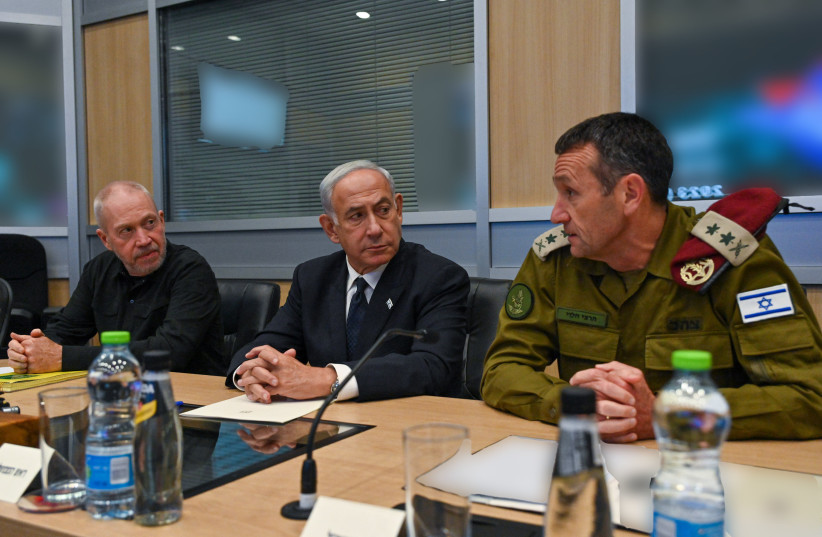IDF Chief of Staff Lt.-Gen. Herzi Halevi on Sunday called on reservists who have quit over the government’s reasonableness standard bill legislation to return to the military’s ranks.
If at other stages in the conflict, the IDF had threatened sanctions, Halevi now seems to have pivoted to offering an amnesty of sorts.
“The reservists are extremely dear to us, and their contribution to the state is tremendous,” he wrote in a public letter. “I respect everyone, even those who arrived at the heavy-hearted decision and signed, with a shaking hand, that they would not respond to their call up. I call on them to return to service.”
Halevi also warned that the military needed all of its reservists “to defend the state, so among other things, there can be an opportunity to conduct disagreements in secure conditions.”
What happens if the IDF collapses over reservist refusal?
In other words, Halevi is saying that if the IDF collapses, the country and the reservists protesting the government’s policy will no longer have sufficient safety to even carry out protests due to danger from Israel’s enemies, who do not care for the debate over Israel’s legal establishment.

Halevi said he had hoped to be able to avoid addressing the legal debates in any fashion. All sides of the debate are legitimate, he said, adding that since the IDF’s “cohesion has already been damaged, we must prevent the cracks from expanding.”
The Jerusalem Post has learned that the IDF is continuing to keep track of its losses in manpower and the impact of those losses on a daily basis, with a growing concern about the implications for the IDF’s readiness later this week and in the coming weeks.
Over the weekend, the number of reservists who quit topped 10,000, with 1,194 from the IAF.
On Sunday, the number of IDF intelligence officials calling on the government to pause the legislation spiked again. If the original numbers were around 100 and then jumped to 300, that number has now risen to 1,855. Of those, 951 are active reserve members who sent a letter to OC Intelligence Corps Maj.-Gen. Aharon Haliva that said they could no longer serve.
The letter said they “call on the government of Israel and the members of the coalition to immediately halt the dictatorial processes.”
They wished to join their brothers in arms in the other branches of the military in ceasing their reserve duty until the government heeds their warnings, they wrote.
According to a chart provided by the reservists, more than 400 of those quitting are from Unit 8200, Israel’s equivalent to the US National Security Agency; 27 come from Intelligence Corps Unit 9900, which provides IAF surveillance and mapping intelligence; and the rest are from other units.
Despite the rising number of protesting reservists, the majority is still serving, and there are also senior top former officers who have called for the reservists not to quit, even as they criticize the government’s policies.
Among others, those calling on reservists not to quit include former IDF chiefs of staff Gadi Eisenkot (National Unity), Benny Gantz (National Unity), Gabi Ashkenazi, and Shaul Mofaz, former National Security Council adviser Yaakov Amidror, and other top former defense officials.
